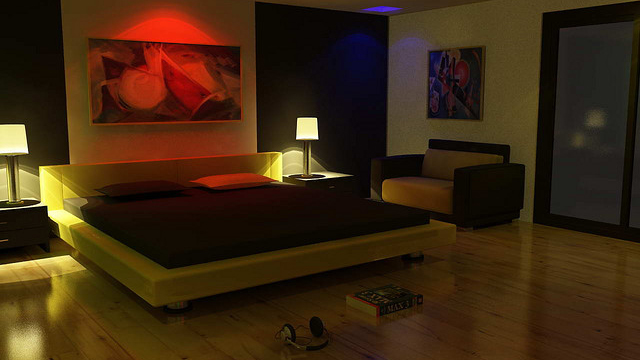It takes a lot of time and dedication to build a freelance career. The hours are long, work can be tedious, and often you need to multitask like crazy. But the freedom of release from a regular work schedule can be fantastic.
In this guide I’d like to go over a few solid techniques for getting organized in your day-to-day tasks. Time management is crucial if you are looking to succeed as a freelancer. You need to stay on task and feel comfortable working within constraining deadlines. With a lot of practice, you can build a great schedule for your hectic workdays.
Setting Time Limits
For many of us it can feel great to spend the whole day working non-stop. But over time this is very draining on your mentality. I frequently become fatigued throughout the day trying to complete many different projects at once.
Because of this it’s important you set limits for yourself. Understand that a time limit will give you more reason to stay attentive. If you work for one(1) hour straight with the knowledge that you can take a 20-minute break afterward, it doesn’t matter how much work you get done. Surely some amount of work will get done in the hour regardless of what you focus on.

This type of work/break switch scenario can be mixed around in different ways. You could have a 30/30 minute split, or even shorter if that works for you. I feel most comfortable working in 50-60 minute periods. This is enough time for me to complete large chunks of project work and come back after the break still just as motivated.
Reflect on Each Day
Both at the beginning and end of your work day you should spend a bit of time in reflection. Go over what you have accomplished (or what you hope to accomplish), what worked, what doesn’t, and any other thoughts floating around.
In the mornings I generally like to spend this time researching online. I’ll check e-mails and go over my outline of tasks for the day. If there’s anything I’m confused about a quick Google search can generally clear things up. I feel it’s best to get this out of the way early so I can dedicate my focus later on getting work done. It also switches my mindset in gear and ready to go!

However at the end of each day your reflections will be very different. You should look over any tasks which weren’t completed and rearrange them accordingly. Try to look at the positives for how much work actually did get done. It can be discouraging when we don’t finish as much as we’d like to. But there is always tomorrow for tackling that next piece to your project.
Building a Tasks List
It’s a no-brainer that having a to-do list for each day will trim out a lot of confusion. But how you break up this list may vary between jobs. Especially if you work in many different fields such as design, coding, or writing.
I suggest testing out a few different methods for writing down tasks. For designers you’ll need to break down identifiable goals and check them off throughout the day. These could be tasks such as “homepage PSD design” or more detailed like “finish sidebar icons in PSD”. Whatever format you choose, make sure it keeps you focused on the ultimate end goal.

Another trick that works well is breaking down larger tasks into smaller sub-tasks. Then you can cross these off as you go through the list, and finally completing the task will feel monumental. A detailed list also paves the road for you to follow instead of just “finish coding web template”. You can clearly define goal markers instead of bland ideas, which allows much more room to grow.
You also have to consider if you would be satisfied building a list on the computer vs writing it down. Some new-age techies really do feel more comfortable with their to-dos stored digitally. I have my project tasks saved in Things for iPhone and Mac. It means I’ll always have access to my lists wherever my phone is, which provides a lot more flexibility. Find a procedure that works for you and stick to it!
Utilize Break Times
We all need to find some room for taking a break in-between work sessions. Even if you are just breaking for lunch or a quick snack, those few minutes are of vital importance.
Take the fullest advantage of your breaks and completely clear out your mind off work. Try doing something recreational if you aren’t already planning something (eating a meal, exercise, etc.). Video games or TV shows can work well if you’re freelancing from home. Alternatively you could browse the Internet a bit, make any necessary phone calls or return text messages. Anything to get your mind off project work.

It’s important to have this small break session every so often as to not drive yourself mad! Work can be fun, but it can also drive a wedge into your creativity. And that’s something you don’t want to fatigue. With a fresh mind you’ll be pumped to hit the keyboard again.
Plan for Realistic Deadlines
The feeling of finishing a huge chunk of work is such a relief. It’s great to know you’ll be secure on money at the end of the month. But there is a limit to the amount of work you can realistically complete in any given day.
Because of this you have to be compassionate with your work schedules. Don’t over-promise clients on things you aren’t sure you can achieve. This will likely turn into a scenario where you’ve stayed up all night chugging coffee to finish those extra tasks. And the money isn’t always worth it!

Remember that getting yourself on a proper diet and sleeping schedule is just as important as your working schedule. Any daily routine will suffer if you can’t get enough sleep at night. You’ll build up a lot of internal stress as well, which makes focusing and completing work immensely difficult. Figure out which times of the day feel most productive for you.
I swear by waking up early in the morning and starting on lengthier tasks such as writing or editing. Come the afternoon I’ll switch to design/coding, e-mails, chats, etc. But I spoke with freelancers who can’t seem to get much done until after the sun goes down. Everybody will have their own schedule times which suit them best – so spend a bit of time figuring out yours!
Conclusion
It’s difficult to give very specific advice to freelancers on scheduling projects. Since everybody works at a different pace, a typical daily routine will change from person to person. But the overall techniques and concepts for properly managing your time should apply universally.
Whether you work from home or in an office space you always need to find ways to keep on task. I hope these ideas can give you a strong push forward. Freelancing is a very tough job yet also rewarding in many unique ways.
Related Topics
Top